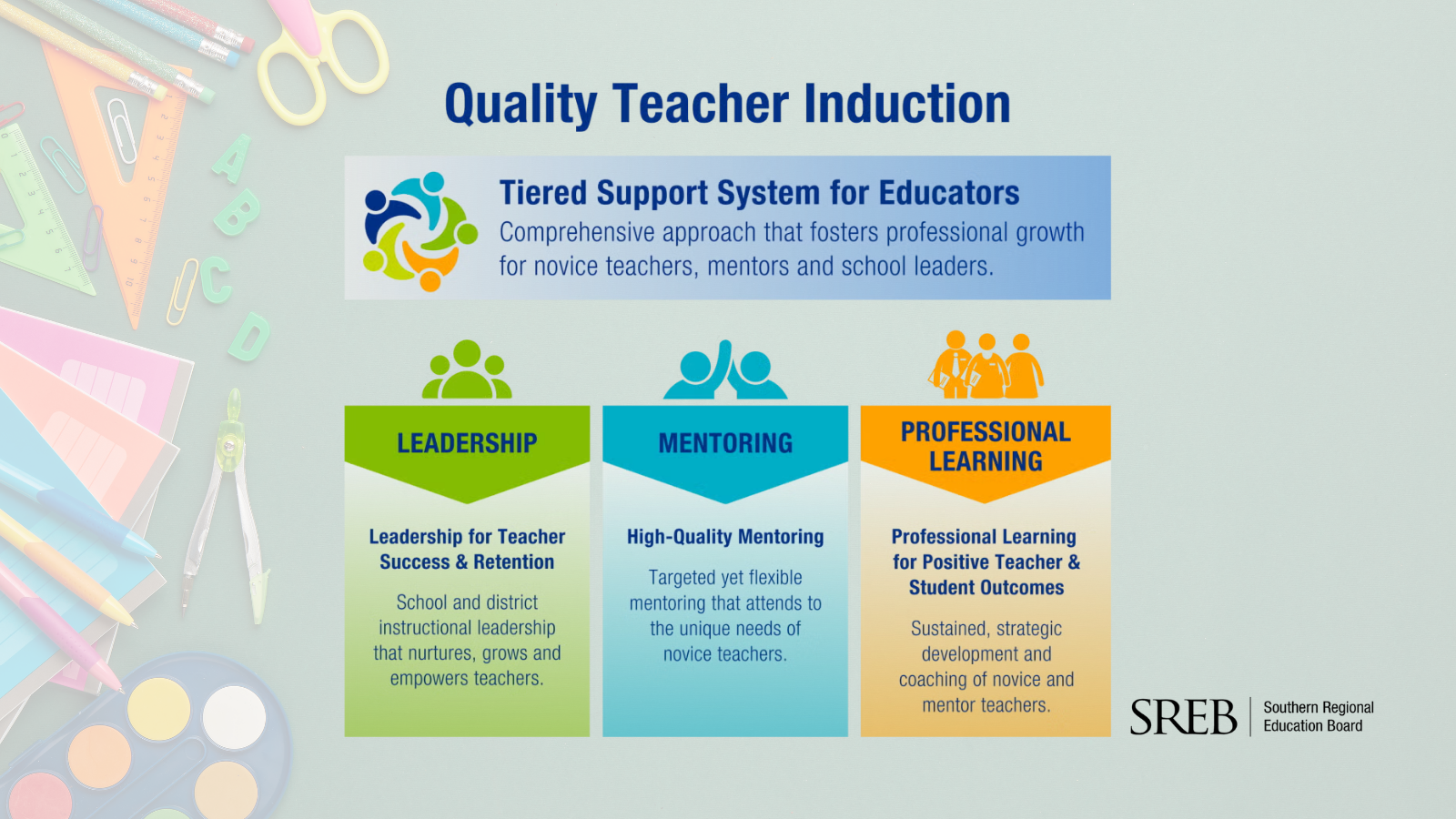
by Amanda Merritt, Division Director of Development & Innovation, Southern Regional Education Board
Build relationships.
Teach procedures and don’t rush the curriculum.
Let them (your students) struggle. Giving answers isn’t learning.
Don’t be afraid to advocate for your students...and yourself.
Novice STEM teachers are given lots of advice as they begin their new career. But positive, uplifting advice must be coupled with meaningful support. Advice isn’t enough.
Strong teacher induction programs are focused on two main outcomes—helping novice teachers provide high-quality instruction to students and stay in the profession. They are designed as a comprehensive support system that helps new teachers transition smoothly into their roles, adapt to new environments, and develop their skills to implement high-impact instructional practices and create a positive classroom culture.
The Southern Regional Educational Board (SREB)’s new Teacher Induction Framework provides guidance to districts on designing and implementing a quality teacher induction program that ensures:
- A tiered support system meets the unique needs of novice teachers and mentors.
- Leaders collaborate and establish structures focused on novice teacher effectiveness.
- Mentoring programs are structured yet flexible.
- Professional learning for novice teachers and mentors is comprehensive, cohesive and strategic.
Strong induction programs require strategic planning and collaboration by many people at a school district, including professional learning providers, school-level administrators, human resources staff, and teacher leaders who serve as mentors. Outside partners, such as educator preparation programs and nonprofit organizations, can also enhance induction programs.
Without multiple layers of support, novice teachers are likely to leave the profession in their first few years. Across the South, turnover is close to 50% for teachers in their first five years. Every student needs a great teacher. But this won’t happen if novice teachers don’t receive the support they need to thrive.
* * *
SREB Teacher Induction Webinar Series
From Surviving to Thriving: Transforming Support for New Teachers
High-quality induction programs that support novice teachers can set them up to make a difference for students.
Join SREB and leaders from around the country for a series of webinars that highlight the critical need for strong teacher induction—and your role in making it happen.
- Rigorous Teacher Induction Can Help End Teacher Shortages, Sept. 11, 1-2 p.m. EDT
- How District Leaders Can Create Successful Induction Programs for Novice Teachers, Sept. 18, 1-2 p.m. EDT
- How Principals and Mentors Should Support Novice Teachers, Sept. 25, 1-2 p.m. EDT
- How Educator Preparation Leaders Can Support K-12 Teacher Induction, Oct. 2, 1-2 p.m. EDT
- Policymakers Can Help Support and Retain More Novice Teachers, Oct. 9, 1-2 p.m. EDT
Learn more and register.
* * *
Amanda Merritt, Ed.D., is the Division Director of Development & Innovation at the Southern Regional Education Board (SREB). She leads a team of researchers and coaches who develop grant proposals and provide support to teachers, local instructional coaches and school and district leaders on school improvement processes. Previously, she has served as a senior leadership coach and mathematics instructional coach at SREB. Before joining SREB in 2012, Amanda was a high school math teacher in Georgia. She holds a bachelor’s degree in journalism from Auburn University, a master’s in middle grades education (math and science) from Columbus State University and a doctorate of education in educational leadership from Georgia State University.